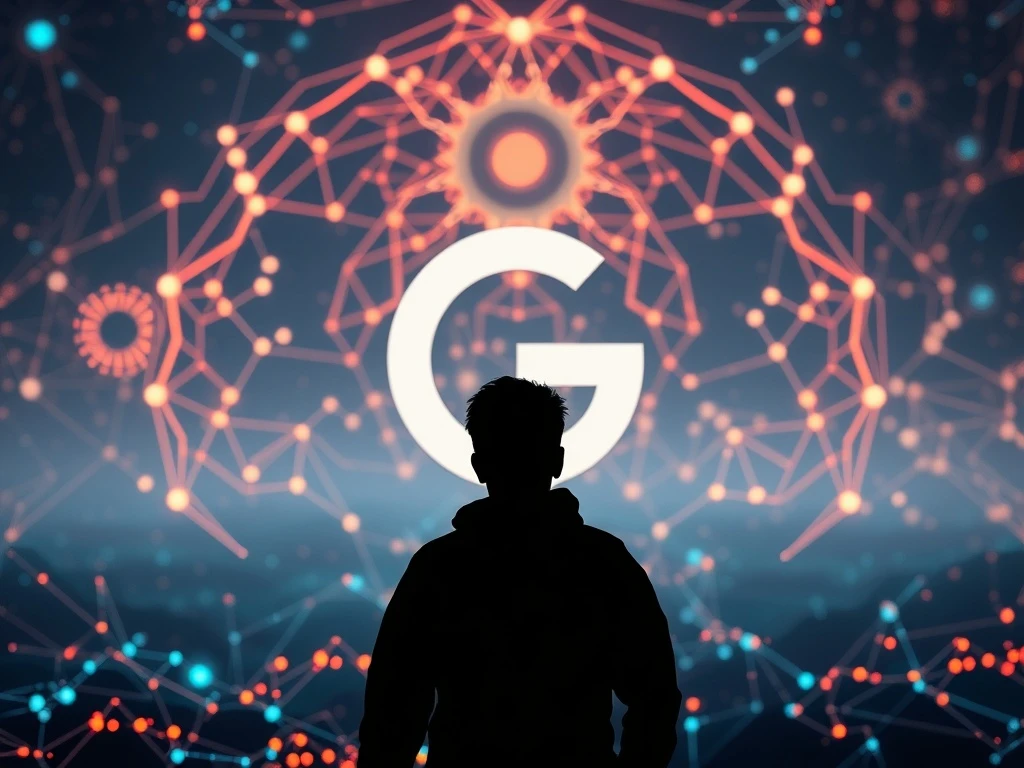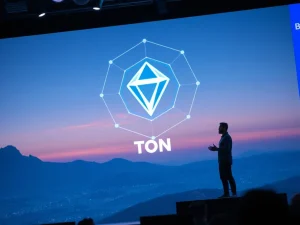Elon Musk Challenges Misinformation: Grokipedia’s Crucial Beta Arrives in Weeks

In a digital age saturated with information, discerning truth from fiction becomes increasingly vital. For those deeply invested in the fast-paced world of cryptocurrency and cutting-edge technology, the quest for reliable data is constant. Now, a significant development is on the horizon: **Elon Musk** and his AI company, xAI, are poised to launch Grokipedia, an ambitious new **AI knowledge base**. This platform directly challenges existing information sources, promising to deliver a more accurate and verifiable understanding of the world. It aims to address widespread concerns about misinformation and ideological biases, a topic often debated within tech and crypto communities.
Elon Musk Unveils Grokipedia: A New Era for AI Knowledge Base
Elon Musk recently announced the upcoming beta launch of Grokipedia, xAI’s highly anticipated answer to platforms like Wikipedia. The first early beta version, 0.1, will roll out in just two weeks. Musk describes Grokipedia as a direct response to “falsehoods” and “half-truths” prevalent in online information. This move signals a significant step in xAI’s broader mission. Therefore, it holds considerable implications for how we consume and trust digital knowledge.
Musk initially revealed plans for Grokipedia on September 30, stating it would be a “massive improvement over Wikipedia.” He also emphasized its necessity for xAI’s overarching goal: understanding the universe. Details remain somewhat sparse, yet Musk confirmed Grokipedia will function as an **open-source knowledge repository**. This approach suggests a community-driven model, potentially leveraging AI for content generation and verification. The initiative sparks immediate interest among tech enthusiasts and those seeking more objective information.
Challenging ‘Falsehoods’: The Genesis of Grokipedia
The concept for Grokipedia emerged during a live brainstorming session at The All-In Podcast summit in September. During his appearance, Musk explained how xAI’s Grok AI scans diverse sources. These sources include Wikipedia entries, documents, and PDFs. Grok then verifies the information, categorizing it as true, partially true, false, or missing details. This meticulous process forms the core of Grokipedia’s proposed functionality. Consequently, it aims to present a more complete and accurate narrative.
Co-host David Sacks suggested Musk launch a “Grokipedia” as a service. Musk responded positively, promising to discuss the idea with his team. This impromptu discussion quickly evolved into a concrete plan, underscoring the rapid development cycle at xAI. The platform’s foundation rests on AI-powered analysis, a key differentiator from traditional, human-edited encyclopedias. This unique methodology positions Grokipedia as a serious contender in the digital knowledge landscape.
Elon Musk’s Long-Standing Feud with Wikipedia
Elon Musk has maintained a public and often vocal disagreement with Wikipedia for an extended period. He has frequently criticized the platform, alleging it disseminates misinformation. Furthermore, he claims its editorial practices lean heavily towards a left-wing bias and that it censors certain information. These criticisms highlight a broader debate about neutrality and objectivity in online encyclopedias. His stance resonates with many who question the impartiality of dominant information sources.
In October 2023, Musk even offered to pay Wikipedia $1 billion if it rebranded to “Dikipedia.” This provocative offer aimed to underscore his accusations of ideological bias, particularly amid the Wikimedia Foundation’s fundraising efforts. He humorously referenced this joke again recently, responding to venture capitalist Chamath Palihapitiya’s assertion that “Wikipedia is a massive psyop.” These incidents illustrate Musk’s deep-seated skepticism about Wikipedia’s neutrality. They also underscore his motivation for creating a reliable **Wikipedia alternative**.

Wikipedia itself has faced numerous controversies throughout its history, many of which are openly documented on the platform. A recent incident reigniting debate was an interview Tucker Carlson conducted with Wikipedia co-founder Larry Sanger on September 30. Sanger, who departed the platform in 2002, discussed the approved and blacklisted sources on Wikipedia. He notably alleged that “there is a serious academic encyclopedia of Christianity that is not allowed on Wikipedia.” He further claimed, “There is a whole army of administrators — hundreds of them — who are constantly blocking people that they have ideological disagreements with.” These revelations fuel the ongoing discussion about censorship and bias in crowd-sourced information. Consequently, Grokipedia’s arrival offers a potential new paradigm.
How xAI’s Grokipedia Aims to Verify Information
Grokipedia’s core innovation lies in its AI-driven approach to information verification and presentation. Unlike traditional platforms relying solely on human editors, Grok leverages advanced AI algorithms. These algorithms process vast amounts of data from diverse sources. This process allows Grok to perform a multi-faceted analysis, aiming to establish the veracity of information. Therefore, it seeks to offer a more nuanced understanding of complex topics. The system will categorize information based on its findings:
- True: Information is verified and accurate across multiple credible sources.
- Partially True: Some elements are correct, but context or details are missing or inaccurate.
- False: The information is demonstrably incorrect or fabricated.
- Missing Details: The information is incomplete, requiring further context or data for a full understanding.
After this assessment, Grok will rewrite the information. It aims to convey what it determines to be the “full truth.” This process is designed to minimize human bias and present a more objective account. The ambition is to provide users with a comprehensive and reliable **AI knowledge base**. This could significantly impact how individuals access and trust online data. It represents a bold step towards an AI-curated information ecosystem.
The Broader Impact of this Wikipedia Alternative
The launch of Grokipedia could have profound implications for the digital information landscape. As a direct **Wikipedia alternative**, it introduces a new model for knowledge dissemination. This model prioritizes AI-driven verification and an open-source framework. Such a platform might encourage greater transparency in information sourcing and editing. It could also push existing platforms to re-evaluate their own verification processes. The competition could ultimately benefit users by providing more diverse and potentially more accurate information sources. Moreover, it aligns with a growing demand for trustworthy data in an era of rampant deepfakes and manipulated content.
For the crypto community, where verifiable truth and decentralized information are paramount, Grokipedia could hold particular appeal. The principles of open-source development and resistance to centralized control often resonate deeply within this space. A knowledge base designed to combat “falsehoods” using AI could become an invaluable resource. It could offer reliable insights into complex technological and financial topics. This development also underscores the increasing integration of AI into fundamental aspects of our digital lives, moving beyond specialized applications into general information services.
Beyond Grokipedia: xAI’s Ambitious Future
Elon Musk’s ambitions for xAI extend far beyond Grokipedia. The company is actively exploring other innovative ventures. In a recent retweet on X, Musk revealed plans for an xAI game studio. This studio aims to release a “great AI-generated game before the end of next year.” This announcement indicates xAI’s diverse interests and its commitment to leveraging artificial intelligence across various sectors. The move into gaming demonstrates a broad vision for AI’s application, from factual knowledge to creative entertainment.
These initiatives collectively highlight xAI’s goal of pushing the boundaries of artificial intelligence. By developing tools like Grokipedia and venturing into AI-generated gaming, xAI seeks to shape the future of technology and information. The company’s projects, under Musk’s leadership, consistently aim to disrupt established norms and offer novel solutions. Therefore, the upcoming launch of Grokipedia is just one facet of a much larger, transformative vision for AI’s role in society. It promises to be an exciting period for technological advancements and information accessibility.








